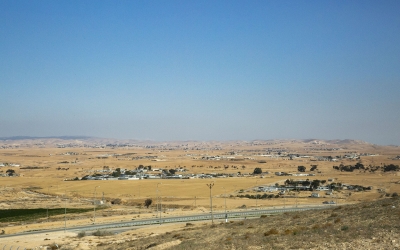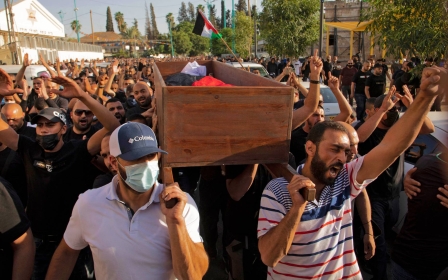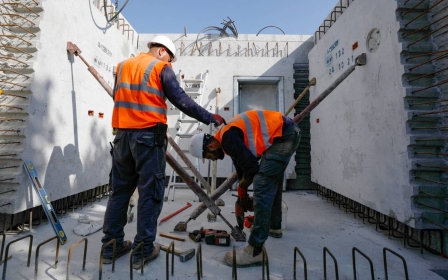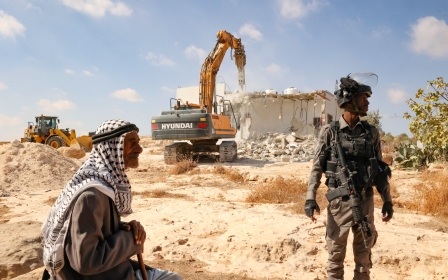Negev: Israeli forces destroy sit-in tents in Palestinian villages, carry out demolitions
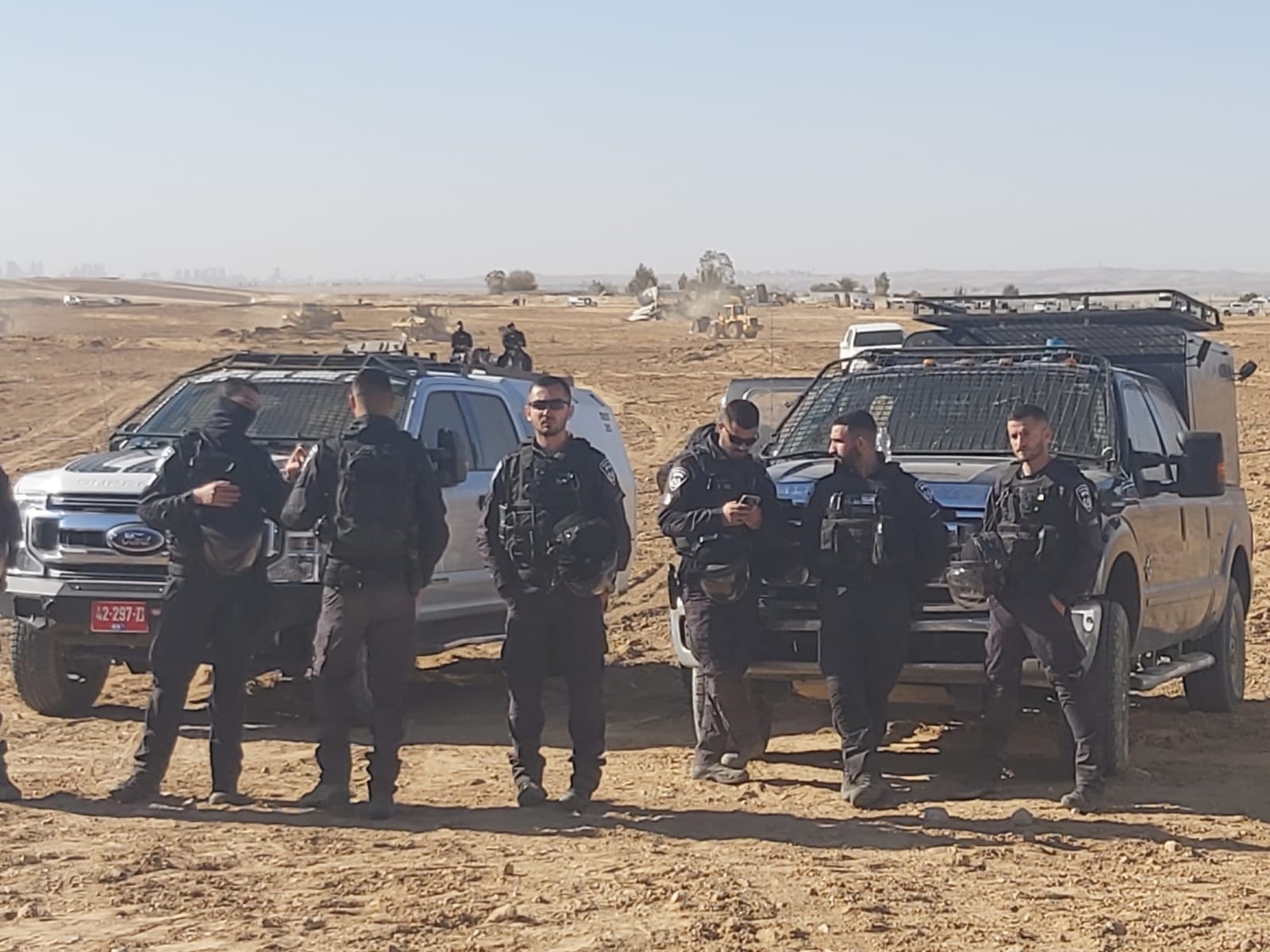
Israeli forces stormed Palestinian villages in the Negev desert early on Tuesday, destroying sit-in tents and arresting protesters who gathered to denounce demolition work carried out by Israeli bulldozers on land local Bedouins use for cultivation.
Two sit-in tents in the villages of al-Atrash and al-Sawa were raided by Israeli police, who fired rubber bullets and stun grenades at protesters and arrested around 20 people, according to local media.
The police then closed off the villages and prevented citizens from entering their lands. Palestinian residents moved their demonstration to the entrance of the villages as Israeli bulldozers carried out demolitions for the second day.
On Monday, Israeli police assaulted Palestinian protesters in the village of al-Atrash, briefly detaining seven people including three children and local journalist Yasser Al-Uqbi, who was also beaten by police, according to local media.
The Higher Follow Up Committee of Arabs in the Negev, a local umbrella body that represents Palestinians in the area, announced a general strike in response to the demolitions.
“We took the decision to undertake proactive measures, beginning with adopting a cumulative resistance programme over a period of six months that will lead to a regional general strike and a massive demonstration outside the prime minister’s office, and the internationalisation of the issue to expose the racist practices [of Israeli authorities] before international institutions,” the committee said in a statement.
A large demonstration is planned on Thursday at 3pm local time, the committee said.
The general strike was announced in villages facing the threat of demolition including al-Atrash, al-Sawa, al-Zarnouq, al-Ruwais, Beir Haddaj and Khirbet Watan.
'Unrecognised' villages
The demolitions in al-Naqab are part of a controversial Israeli plan, led by the Jewish National Fund, to plant trees in the region.
Residents say such policies are an attempt to pressure them into being internally displaced despite Bedouins having lived on or near these lands prior to Israel's establishment in 1948.
Last month, Israeli police confronted Palestinians in six villages - al-Mashash, al-Zarnouq, Bier al-Hamam, al-Ruwais, al-Gharaa, and Khirbet Watan - destroying crops and excavating soil.
The Israeli government considers the six Palestinian villages "unrecognised," and therefore they are under threat of demolition.
Al-Araqib, one of the 35 unrecognised Palestinian villages in the Naqab, has been demolished 196 times by Israeli forces.
There are almost 100,000 Palestinians who hold Israeli citizenship living in these 35 unrecognised villages.
They are part of 300,000 Palestinian citizens of Israel living in Negev towns, concentrated to the east of Road 40, which cuts Israel's southern territory in half.
Unrecognised villages are denied any infrastructure or support from the government. There are no means of transportation, no roads, no schools, and Israeli authorities don't collaborate with their local leadership.
Middle East Eye delivers independent and unrivalled coverage and analysis of the Middle East, North Africa and beyond. To learn more about republishing this content and the associated fees, please fill out this form. More about MEE can be found here.


